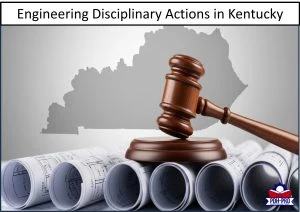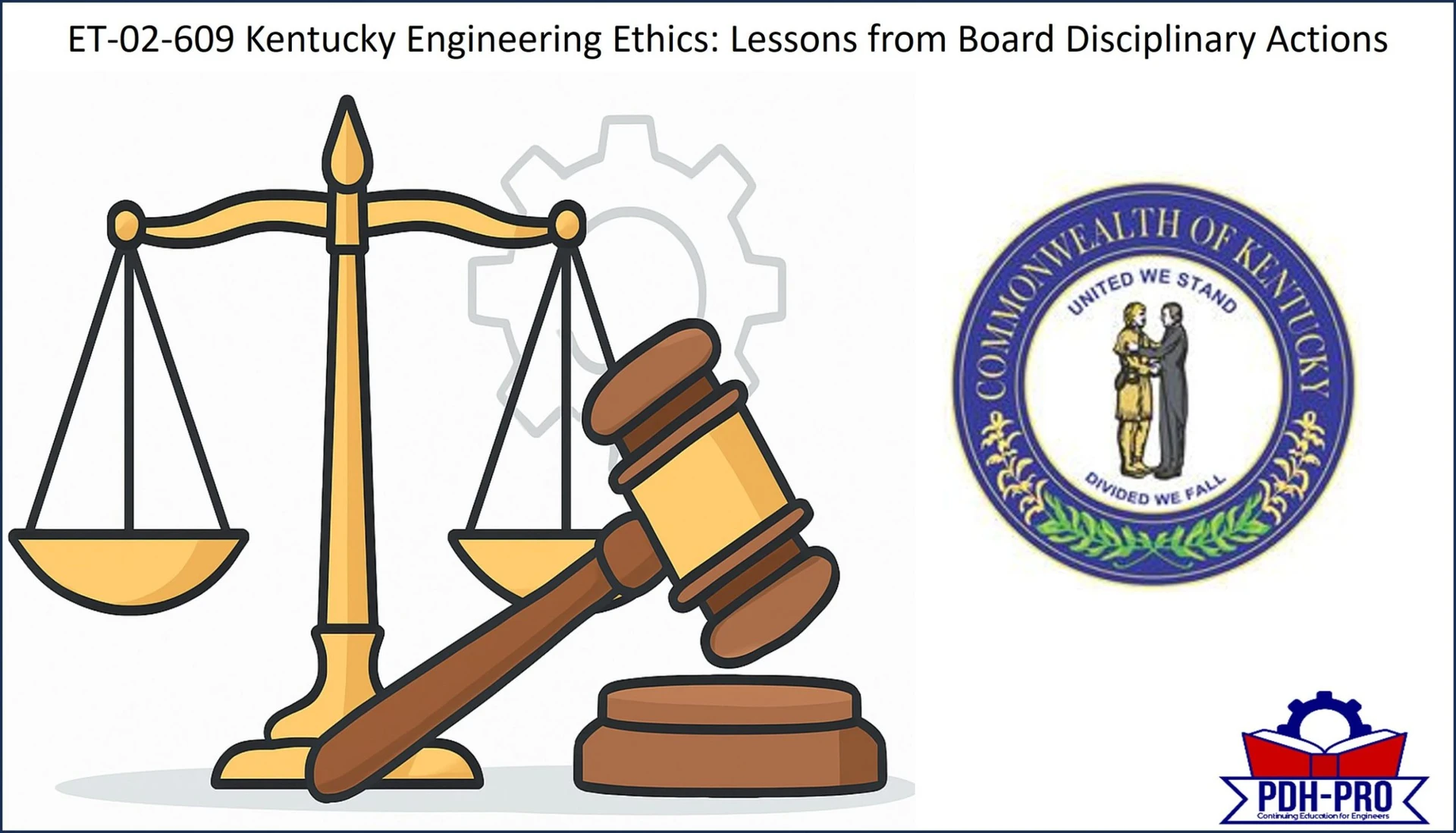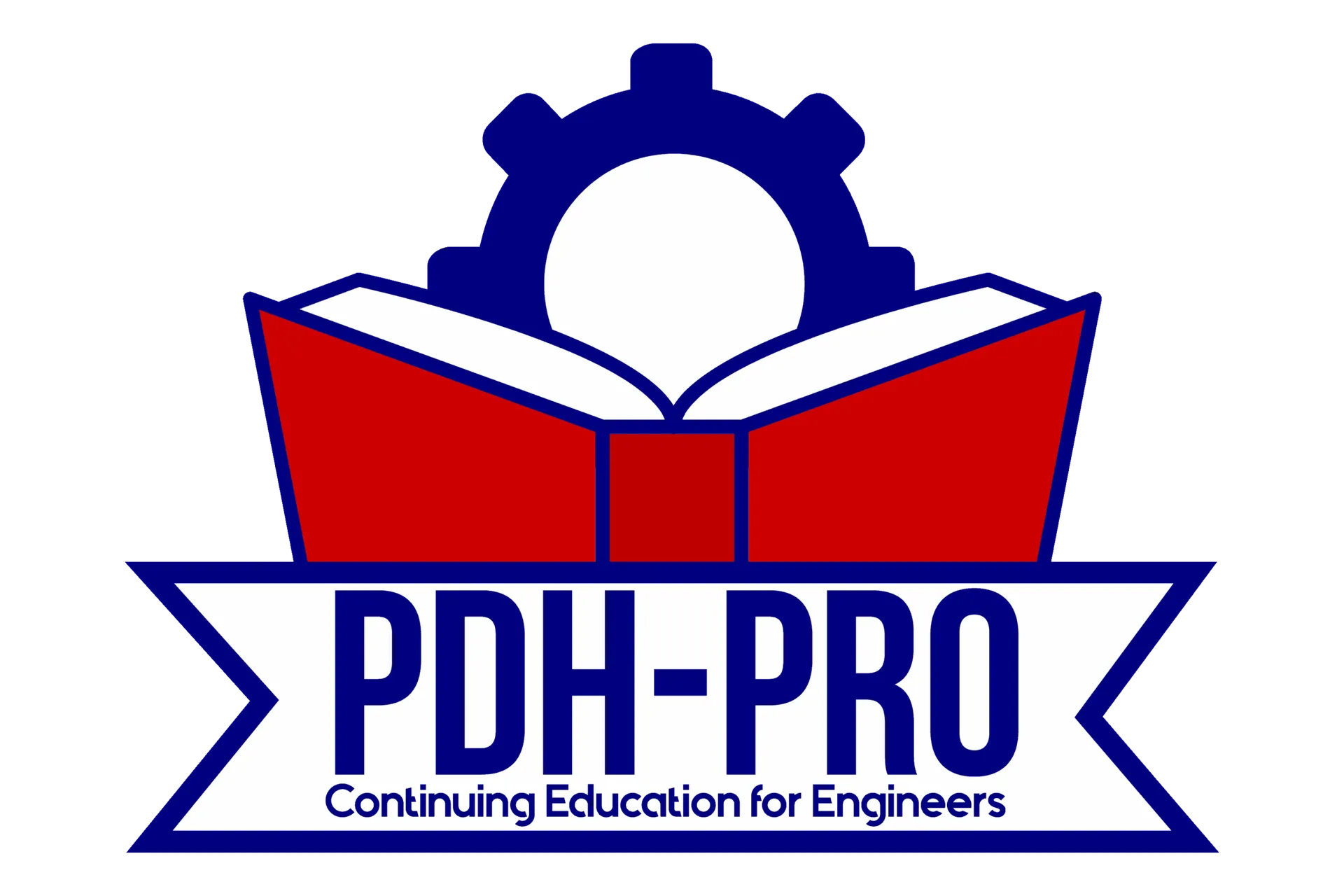
Written by: Jordan Ellis, PE
Published: July 2, 2025 | Updated: November 20, 2025
I’ve been a P.E. for a long time, and I’ve always believed that our license is the most valuable asset we own. It’s a testament to years of hard work and a promise to the public that we’ll practice with integrity. That’s why I make it a habit to review the disciplinary actions published by state boards.
I just finished reading through a slate of recent cases from the Kentucky Board of Licensure, and frankly, they’re a wake-up call. I saw good careers jeopardized and licenses revoked, not always because of a catastrophic design failure, but often due to a series of preventable mistakes.
These aren’t just stories; they are cautionary tales for all of us. I want to walk you through the patterns I saw, from one P.E. to another, so you can avoid the traps that ensnared these engineers. Kentucky case outcomes frequently highlight the same professional vulnerabilities emphasized in the broader core reference on professional engineer disciplinary actions, particularly those involving ethical judgment and engineering oversight.
Related article: What are the Most Common Ethics Violations for Professional Engineers.
Ethics Course for Kentucky Engineers

This one-hour online course provides Texas Professional Engineers with a clear understanding of their ethical and legal responsibilities under the Texas Engineering Practice Act and TBPELS rules while earning guaranteed PDH credit. Using real Texas disciplinary cases, it highlights common violations and offers practical strategies for maintaining compliance and upholding professional standards. Ideal for engineers seeking to strengthen their ethical practice and meet continuing education requirements in Texas.
The Unforced Error: How a Simple Renewal Can Derail Your Career
Let’s be honest, we’ve all been there. A project deadline is looming, the client is demanding changes, and your license renewal notice gets buried under a stack of drawings. It’s easy to think, “I’ll get to it next week.”
This is the single most common “unforced error” I saw in the Kentucky cases. Nearly every disciplinary action started with a late license renewal. That one slip automatically triggers a Continuing Professional Development (CPD) audit, and that’s where the real trouble begins. Suddenly, you’re not just paying a late fee; you’re being asked to produce years of records on short notice.
In several cases, engineers were short on their 30 required hours. Others simply couldn’t produce the records. This is a failure of personal project management, and the Board treats it as such. For those who owned up to it and worked with the Board, the outcome was often a manageable fine and a plan to make up the hours. A headache, but not a career-ender.
Issues surrounding incomplete records and deficient calculations in Kentucky mirror challenges seen in Nevada professional engineer audit-failure cases, where documentation failures have played a central role in board decisions.
Career Suicide: Ghosting the Licensing Board
If you take only one piece of advice from this article, let it be this: You must respond to the Board.
Treating a notice from the Board like junk mail is the fastest way to turn a manageable problem into a catastrophe. In Case #1, an engineer with a CPD deficiency failed to respond to the audit, then to follow-up emails, and finally to a formal Administrative Complaint. The result? His license was revoked. He lost his career not just because he was short on his hours, but because he ignored his professional duty to answer to the body that governs our profession.
The consequences for ignoring Board communications cannot be overstated; in one recent case, the Ohio Board of Registration accepted the voluntary surrender of a PE’s license, treated as a revocation, after he failed to respond to a CPD audit.
We saw this pattern repeatedly. An engineer fails to respond, the Board’s actions escalate, and a default judgment is issued. In the Board’s eyes, non-cooperation is an admission of guilt and a profound lack of professional character. Don’t make that mistake.
The Bright Red Lines: Your Seal, Your Word, Your Responsibility
While CPD issues are common, there are some bright-red lines that, when crossed, rightfully result in the most severe consequences. These are the violations that cut to the very core of what it means to be a Professional Engineer.
- “Plan Stamping” (Certifying Work You Didn’t Supervise): In Case #13, an engineer put his seal on a plan prepared by a CAD tech who wasn’t under his control. He wasn’t even aware of the project until he was asked to sign off. His penalty was a $5,000 fine and a 60-hour ethics course. As engineers, our seal is our bond. It tells the world, “I have personally reviewed this work and I am responsible for it.” Using it casually is a fundamental betrayal of that trust.
- Forgery and Deceit: The most disturbing case involved an engineer who forged client signatures and created fake approval letters from state agencies (Case #9). The Board’s action was swift: he was forced to surrender his license “as if revoked,” and a court issued a permanent injunction against him. If he violates it, he faces fines and jail time. This is the ultimate professional sin, and the punishment reflects that.
These actions aren’t just breaking rules; they are a direct threat to the public’s health, safety, and welfare. There is no middle ground here, and the Board’s severe response is one we should all support.
Summary of Disciplinary Cases and Penalties
The following table provides a case-by-case summary of the 20 disciplinary actions, illustrating how specific violations—or a combination of them—led directly to the resulting penalty.
| Case # | Primary Violation(s) | Penalty |
| 1 | CPD Deficiency, Failure to Cooperate | License Revoked |
| 2 | CPD Deficiency | License placed in “Inactive” status |
| 3 | CPD Deficiency | License placed in “Retired” status |
| 4 | CPD Deficiency, Non-cooperation | Reprimand, $2,000 Fine, Make-up CPD |
| 5 | CPD Deficiency | Reprimand, $1,000 Fine, Make-up CPD |
| 6 | CPD Deficiency, Non-cooperation | Reprimand, Make-up CPD for multiple periods, Ethics Course |
| 7 | Violation of prior Consent Decree, Aided unlicensed practice | License Revoked |
| 8 | Falsely claimed CPD exemption, CPD Deficiency, Non-cooperation | Reprimand, Ethics Course, Make-up CPD |
| 9 & 12 | Forgery, Unlicensed Practice (firm), CPD Deficiency, Violated surrender agreement | License Surrendered “as if revoked,” Permanent Injunction with fine/jail threat |
| 10 | Unauthorized Practice of Land Surveying (forgery) | Amended Permanent Injunction with $2,000 fine and 10 days jail for future violations |
| 11 | Certifying work of others, Aided unlicensed practice, Non-cooperation | License Revoked |
| 13 | Certifying work of others | Reprimand, $5,000 Fine, 60-hour Ethics Course |
| 14 | CPD Deficiency, Non-cooperation | License placed in “Retired” status |
| 15 | Repeated CPD Deficiencies | Reprimand, $2,000 Fine, Make-up CPD |
| 16 | Repeated CPD Deficiencies, Falsely claimed CPD | Reprimand, $1,000 Fine, Make-up CPD |
| 17 | Repeated CPD Deficiencies, Falsely claimed CPD | License placed in “Retired” status |
| 18 | Repeated CPD Deficiencies, Failure to Cooperate | License Revoked |
| 19 | Certifying work of others | Reprimand, $1,000 Fine, 30-day Suspension, 60-hour Ethics Course |
| 20 | Practicing outside area of competence | Reprimand, $1,000 Fine, 30-day Suspension, 60-hour Ethics Course |
The failure to obtain the required Continuing Professional Development (CPD) hours is a recurring issue, with similar cases involving fines and reprimands also appearing in disciplinary actions from South Carolina.
Types of Violations and Typical Penalties
The following table breaks down the violations from the 20 disciplinary cases by type, providing a clear snapshot of the most common offenses and the severity of their corresponding penalties. This summary highlights the Board’s consistent focus on continuing education, professional integrity, and cooperation with investigations.
Summary of Violations by Type, Count, and Penalty
| Violation Type | Count | Range of Penalties |
| Failure to Obtain Required CPD Hours | 15 | Written Admonishment, Reprimand, Fines ($1,000 – $2,000), Make-up CPD, License placed in “Retired” or “Inactive” status, License Revocation (when combined with non-cooperation). |
| Failure to Cooperate / Respond to Board | 10 | Escalation to formal complaint, Fines, Reprimand, and consistently led to License Revocation by default judgment. |
| Certifying Work Not Under Direct Supervision (“Plan Stamping”) | 3 | Reprimand, Fines ($1,000 – $5,000), 30-day License Suspension, Mandatory 60-hour Ethics Course, License Revocation (when combined with other factors). |
| Falsely Claiming CPD Compliance on Renewal | 4 | Written Admonishment, Reprimand, Fines ($1,000), Mandatory Ethics Course, License placed in “Retired” status. |
| Practicing Through an Unpermitted Business Entity | 3 | Reprimand, Fines, License Revocation (for the responsible PE). |
| Violation of a Prior Board Order / Consent Decree | 2 | License Revocation, Permanent Injunction with threat of fine/jail time. |
| Forgery of Signatures or Official Documents | 2 | License Surrendered “as if revoked,” Permanent Injunction with threat of fine/jail time for future violations. |
| Aiding and Abetting Unlicensed Practice | 2 | License Revoked for the licensed professional. |
| Practicing Outside Area of Competence | 1 | Reprimand, $1,000 Fine, 30-day License Suspension, 60-hour Ethics Course. |
| Unauthorized Practice (by unlicensed individual) | 1 | Amended Permanent Injunction from Franklin Circuit Court with stipulated penalties of a $2,000 fine and 10 days in jail for any future violations. |
Note: Many cases involved multiple violations, so the counts below will add up to more than the total number of cases. The penalties listed reflect the full scope of the board’s action in cases where that specific violation was present.
In addition to individual licensure, engineers who own or operate a business must ensure their firm is properly registered, a requirement that has led to sanctions for engineering firms in West Virginia who practiced without a valid Certificate of Authorization.
Several of Kentucky’s disciplinary themes align closely with Indiana PE disciplinary actions and penalty examples, especially regarding competency requirements and the importance of maintaining accurate engineering files.
How the Disciplinary Process Begins in Kentucky
The Kentucky Board of Licensure operates on a complaint-based system, meaning it typically launches an investigation after receiving a formal complaint from a client, another professional, or a member of the public. The process for making a complaint against a Kentucky P.E. or P.L.S. requires an individual to submit a signed letter detailing the allegations, along with any supporting documentation, directly to the Board’s Executive Director. Once received, Board staff review the complaint to determine if it falls within their jurisdiction and warrants a formal investigation, which then sets the disciplinary process in motion.
Lessons for Our Practice
So, how do we stay off this list? It’s not complicated. It comes down to applying the same diligence to our own professional lives that we apply to our projects.
- Manage Your License Like a Project: Your renewal date is a hard deadline. Put it in your calendar with multiple reminders. Treat your CPD portfolio like a project submittal—keep it organized, current, and ready for review at a moment’s notice.
- Guard Your Seal: Your seal is your reputation. Never, ever apply it to work that you did not personally prepare or directly supervise. The pressure from a client or a boss is temporary; the damage from a violation is not.
- Answer the Call: If the Board contacts you, respond. Immediately. Even if the news is bad, facing it head-on with transparency is infinitely better than hiding.
- Embrace Your Duty: We are engineers because the public trusts us to get it right. That trust is built on a foundation of professional competence and ethical integrity. Every decision we make either strengthens or weakens that foundation.
Protecting your license is about more than avoiding trouble. It’s about upholding the standards of a profession we all chose. Let’s make sure we’re all doing our part.
Written by: Jordan Ellis
